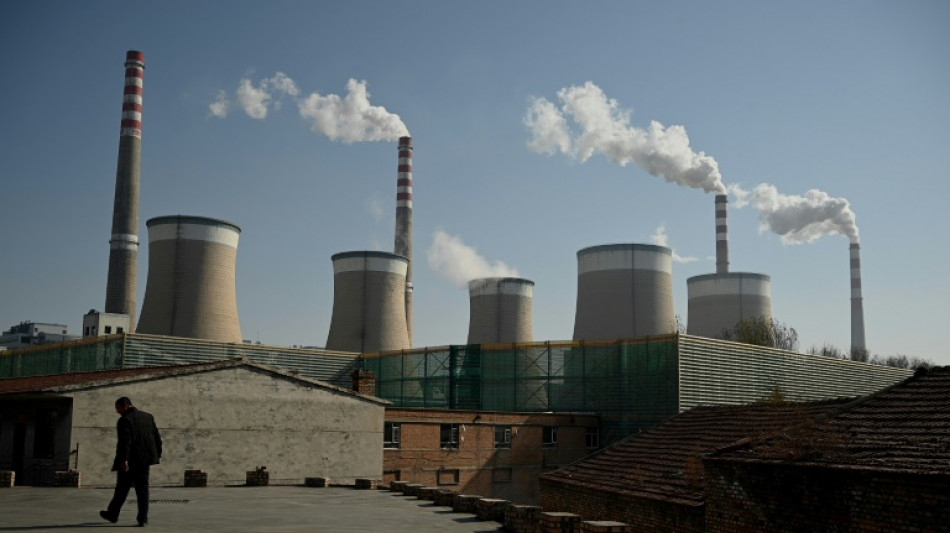
-
 Japan PM's tax giveaway roils markets and worries voters
Japan PM's tax giveaway roils markets and worries voters
-
Amid Ukraine war fallout, fearful Chechen women seek escape route

-
 Rybakina surges into Melbourne semis as Djokovic takes centre stage
Rybakina surges into Melbourne semis as Djokovic takes centre stage
-
Dollar struggles to recover from losses after Trump comments

-
 Greenland blues to Delhi red carpet: EU finds solace in India
Greenland blues to Delhi red carpet: EU finds solace in India
-
Will the EU ban social media for children in 2026?

-
 Netherlands faces 'test case' climate verdict over Caribbean island
Netherlands faces 'test case' climate verdict over Caribbean island
-
Rybakina stuns Swiatek to reach Australian Open semi-finals

-
 US ouster of Maduro nightmare scenario for Kim: N. Korean ex-diplomat
US ouster of Maduro nightmare scenario for Kim: N. Korean ex-diplomat
-
Svitolina credits mental health break for reaching Melbourne semis

-
 Japan's Olympic ice icons inspire new skating generation
Japan's Olympic ice icons inspire new skating generation
-
Safe nowhere: massacre at Mexico football field sows despair

-
 North Korea to soon unveil 'next-stage' nuclear plans, Kim says
North Korea to soon unveil 'next-stage' nuclear plans, Kim says
-
French ex-senator found guilty of drugging lawmaker

-
 US Fed set to pause rate cuts as it defies Trump pressure
US Fed set to pause rate cuts as it defies Trump pressure
-
Sleeping with one eye open: Venezuelans reel from US strikes

-
 Venezuela's acting president says US unfreezing sanctioned funds
Venezuela's acting president says US unfreezing sanctioned funds
-
KPop Demon Hunters star to open Women's Asian Cup

-
 Trump warns of 'bad things' if Republicans lose midterms
Trump warns of 'bad things' if Republicans lose midterms
-
Russian strikes in Ukraine kill 12, target passenger train

-
 With Maduro gone, Venezuelan opposition figure gets back to work
With Maduro gone, Venezuelan opposition figure gets back to work
-
Celebrities call for action against US immigration raids

-
 Rubio to warn Venezuela leader of Maduro's fate if defiant
Rubio to warn Venezuela leader of Maduro's fate if defiant
-
Denver QB Nix 'predisposed' to ankle injury says coach

-
 Lula, Macron push for stronger UN to face Trump 'Board of Peace'
Lula, Macron push for stronger UN to face Trump 'Board of Peace'
-
Prass stunner helps Hoffenheim go third, Leipzig held at Pauli

-
 Swiss Meillard wins final giant slalom before Olympics
Swiss Meillard wins final giant slalom before Olympics
-
CERN chief upbeat on funding for new particle collider

-
 Trump warns US to end support for Iraq if Maliki returns
Trump warns US to end support for Iraq if Maliki returns
-
Judge reopens sexual assault case against goth rocker Marilyn Manson

-
 South Korea's ex-first lady to learn verdict in corruption case
South Korea's ex-first lady to learn verdict in corruption case
-
Rosenior dismisses Chelsea exit for 'untouchable' Palmer

-
 Markram powers South Africa to win over West Indies
Markram powers South Africa to win over West Indies
-
Vladimir Padrino: Venezuela's military power broker

-
 Amazon closing Fresh and Go stores in Whole Foods push
Amazon closing Fresh and Go stores in Whole Foods push
-
Koepka nervous about game and fans in PGA Tour return

-
 Trump's Iowa trip on economy overshadowed by immigration row
Trump's Iowa trip on economy overshadowed by immigration row
-
Dortmund coach says Inter Milan are improved under Chivu

-
 US border chief in Minneapolis as Trump tries to calm crisis
US border chief in Minneapolis as Trump tries to calm crisis
-
What to know about America's colossal winter storm

-
 Iran warns against 'instability' after US strike group arrives
Iran warns against 'instability' after US strike group arrives
-
GM reports quarterly loss but boosts shareholder returns

-
 US banks fight crypto's push into Main Street
US banks fight crypto's push into Main Street
-
NFL Bills make offensive coordinator Brady new head coach

-
 TikTok settles hours before landmark social media addiction trial
TikTok settles hours before landmark social media addiction trial
-
Newcastle braced for 'ultimate test' against PSG after storm disruption

-
 Brook blitz ends Sri Lanka's unbeaten home run, England clinch series
Brook blitz ends Sri Lanka's unbeaten home run, England clinch series
-
LVMH 2025 net profit drops 13% to 10.9 bn euros

-
 Philip Glass pulls Kennedy Center premiere after Trump takeover
Philip Glass pulls Kennedy Center premiere after Trump takeover
-
Slot says Liverpool must fix 'very bad cocktail'


Three decades ago world told to 'act now' on climate
With the planet facing the "potentially serious consequences" of global warming, UN experts writing 32 years ago urged an indifferent world to take immediate action to reduce greenhouse gas emissions.
Planet-warming carbon pollution has increased ever since.
In 1990 the Intergovernmental Panel on Climate Change produced the first trio of reports in a cycle of climate change assessments -- one on the physical science of warming, one on the impacts and one on solutions -- that has repeated roughly every six years.
While the authors of the most recent IPCC report on impacts, released in February this year, can say the evidence of harm to humanity and the entire planet is "unequivocal", the authors of those first reports 30 years ago could not be as forthright.
But they were clear that the risks were so high we couldn't afford to wait.
"The potentially serious consequences of climate change on the global environment," they said "give sufficient reasons to begin by adopting response strategies that can be justified immediately even in the face of such significant uncertainties".
They said cuts to the planet-warming gases that humans were pumping into the atmosphere should be swift and drastic.
"Because climate change could potentially result in significant impacts on the global environment and human activities, it is important to begin considering now what measures might be taken in response," the report said.
There was never an easy answer.
The scientists writing the 1990 report underscored the need to reduce emissions of different gases -- especially carbon dioxide and methane -- across a range of different sectors, from energy generation to agriculture.
"Our understanding has been refined over 40 years, but the alarm has been ringing since the first IPCC report," said Celine Guivarch, one of the authors of the latest IPCC assessment of solutions, set to be published on April 4.
With each new cycle of climate evaluation, the description of risks in the IPCC reports has become ever clearer and more urgent. The forecasts have become increasingly catastrophic.
Meanwhile, emissions have risen almost every year, only breaking their relentless pace because of major economic crises, such as the one triggered by the Covid-19 pandemic.
As a result, CO2 in the atmosphere has never been higher.
According to data from the Mauna Loa observatory in Hawaii, which has monitored the atmosphere for decades, C02 concentrations reached 416 parts per million in 2021, up from 354 ppm in 1990 when the first IPCC report was published.
Earth has experienced periods of much higher C02 concentrations in the distant past.
But in its report on the physical science released in August 2021, the IPCC said the rate the gas has increased in the atmosphere since 1900 "is at least 10 times faster than at any other time during the last 800,000 years".
"Current levels of atmospheric CO2 have not been experienced for at least two million years," it added.
L.Dubois--BTB




